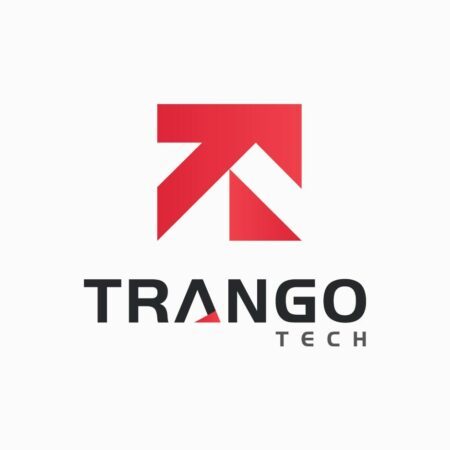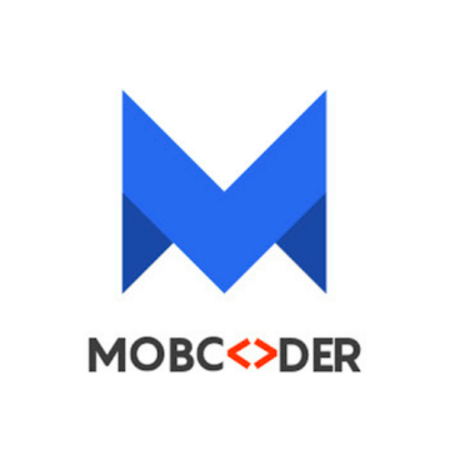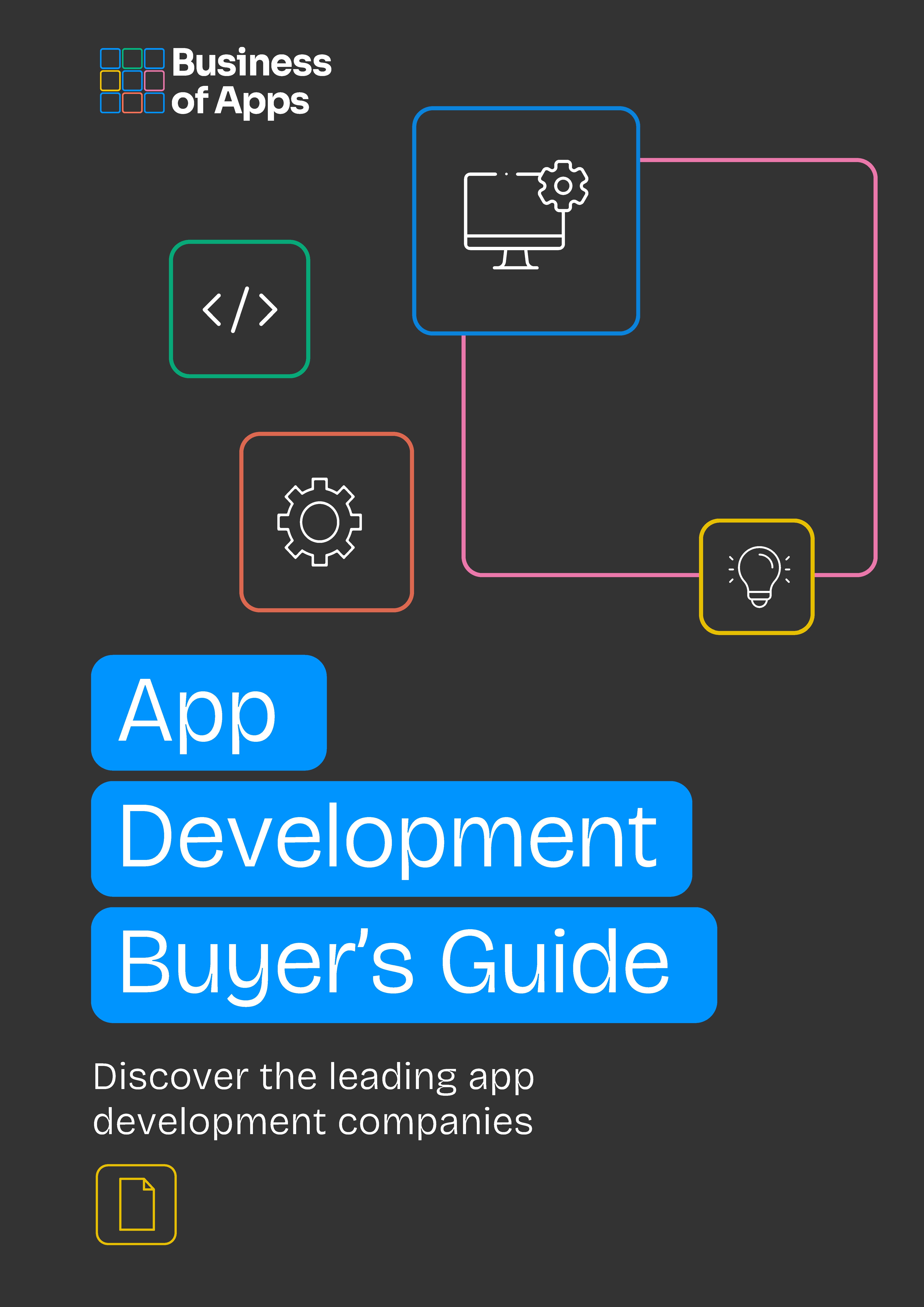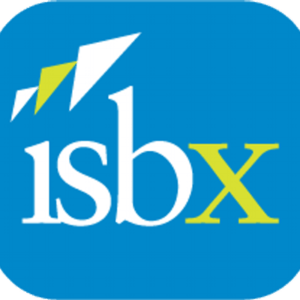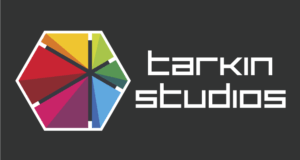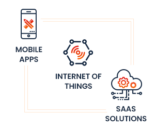This guide will cover the best enterprise app development services, how much it costs, top app development features, and how you stand to benefit from using enterprise app development companies.
Enterprise apps are built for speed and scale and help large organizations engage with customers and partners. These apps are becoming more popular over time, but they require expert-level development to get right.
Like any industry, building and developing enterprise apps requires several must-have features.
These apps need to be able to have seamless integration with business systems, feature real-time updates, and require a high level of security.
A good result here is effective and efficient communication between departments and an application that employees enjoy using for their work.
A mobile enterprise app will only be the right choice for some businesses. Need help knowing where to begin? We’ll cover everything you need to know about enterprise app development.
What is an enterprise app?
Enterprise mobile apps are types of mobile apps built by individual organizations to enable employees to carry out their duties more efficiently.
Unlike consumer mobile apps, which are intended for the general market, mobile enterprise apps are used by the employees of a given organization.
Enterprise apps often combine tools and simplify the everyday processes of companies to reduce costs. Mobile apps ultimately add convenience and improve the efficiency of on-site and remote employees.
App Development Buyer's Guide
Download our App Development Buyer’s Guide to get a full list of the best service providers on the market to choose from. You will also learn about types of app developers, different app development platforms, app developer locations, app development costs, how to select the right one for your business, as well as the questions to ask any of those companies you will be evaluating.
There is an abundance of helpful enterprise apps available on both the Android and Apple app marketplaces today, so your app will need to provide an excellent experience to stay relevant.
The best enterprise app developers
Enterprise app developers are specialized software developers who design, build, and maintain apps tailored for large businesses or enterprises.
These apps are usually more complex (and robust) than standard consumer apps, and they are intended to address the specific needs of businesses, improving operations, productivity, and management at an organizational level.
We’ve listed the best enterprise app developers below.
1. Designli

Designli is a software development firm that offers a comprehensive range of services, including UX/UI design, mobile app development, web app and cross-platform development. Their approach focuses on delivering high-quality, user-friendly solutions.
They have a proven track record of delivering. One of their notable projects is the development of 1MAC Anesthesia, a dynamic anaesthesia job marketplace. This platform connects healthcare professionals with job opportunities, streamlining the hiring process and improving efficiency in the medical field.
Overview
Designli was founded in 2013 by Joshua Tucker and Keith Shields. The company is based in Greenville, South Carolina, and focuses on providing design and development services, particularly for custom mobile and web apps.
Services
Designli provides its customers with the following services:
- Helps clients define their product goals, target users, and market strategies
- Offers design services to craft intuitive and visually appealing user interfaces
- Builds enterprise apps that work across multiple platforms, ensuring broad accessibility and functionality
2. Mobcoder

Mobcoder Inc is a tech company specialising in mobile app development and custom software solutions.
Mobcoder has successfully developed several enterprise apps, including a B2B app for General Mills, which connects vendors with recipes, expert chefs, and a rewards system, and Maro, a mental health platform that empowers families to discuss emotional well-being and diversity. They also developed Cultsport, a health and fitness app offering live sessions and gamified fitness experiences.
Overview
Founded in 2011, the company focuses on delivering high-quality mobile and web apps, providing end-to-end development services, and helping businesses achieve their digital transformation goals.
Their clients typically span a range of industries, including healthcare, finance, and retail.
Services
Mobcoder Inc provides its customers with the following services:
- Creating native enterprise apps for iPhone and iPad using Swift and Objective-C
- Designs intuitive and user-friendly eCommerce experiences for mobile and web apps
- Offers support and updates to keep apps running smoothly and efficiently
3. Light IT Global

Light IT Global is an enterprise app development company that delivers innovative web and mobile solutions for startups and enterprises. With over 18 years of experience, they have completed over 500 custom projects.
Notably, Light IT Global developed a comprehensive, scalable SaaS solution for a network of clinics, enabling medical professionals to operate MRI images more efficiently and reducing manual labour. They also created an interactive eLearning platform for an international educational institution, featuring a precise matching algorithm to connect students with suitable teachers.
Overview
Light IT Global was founded in 2006 in Ukraine. The company began as a small team of three individuals engaged in reconstructing local historic landmarks. Over time, it transitioned into a software engineering firm, expanding its services to include web and mobile development.
Light IT Global employs over 100 professionals and has completed over 500 custom client projects worldwide.
Services
Light IT Global provides its customers with the following services:
- Developing robust, secure, and scalable enterprise platforms that integrate with payment gateways
- Crafting intuitive and visually appealing designs that enhance the user experience and boost engagement
- Designing and building mobile apps for iOS and Android
4. App Maisters
App Maisters specializes in mobile app development and digital solutions. The company is able to develop apps that meet the specific needs of larger organizations.
App Maisters has developed several enterprise apps, including a business intelligence solution for a medical device manufacturer, transforming complex data into visual insights using Power BI. Additionally, they developed a HIPAA-compliant BI solution for a nursing care business application provider, ensuring secure (and efficient) data management.
Overview
App Maisters was founded in 2017 by Fahim Iqbal, the current CEO. Under Iqbal’s leadership, App Maisters has grown and established itself in the app development industry, helping companies across various sectors build innovative mobile apps.
App Maisters has worked with various clients, including brands such as PepsiCo, ExxonMobil, and Shell.
Services
App Maisters provides its customers with the following services:
- Crafts intuitive and functional app designs
- Develops prototypes to visualize the app before full-scale development begins
- Builds apps that work across multiple platforms using frameworks such as Flutter, React Native, and Xamarin
5. Trango Tech

Trango Tech is a tech services and enterprise app development company aimed at helping businesses enhance their digital presence, streamline operations, and innovate their products.
Trango Tech has a proven track record in enterprise app development–a notable example is Construction Connect, a multi-vendor marketplace designed to bridge communication gaps between construction workers and contractors. This platform facilitates seamless connections, allowing users to hire and contract gigs efficiently.
The app’s implementation led to significant improvements, including a 2X increase in traffic, 3X more calls, 4X customer engagement, and a 5X boost in downloads.
Overview
Trango Tech was founded in 2017. The company was established to provide innovative tech solutions, particularly in the areas of mobile app development, web development, and IT consulting.
Since its founding, Trango Tech has worked with clients across various industries to help them build custom software solutions that meet their business needs.
Services
Trango Tech provides its customers with the following services:
- Develops software that enhances enterprise-level systems and helps with automation, integration, and data management
- Offers cloud-based solutions for data storage, scalability, and infrastructure management
- Provides customized platforms to help businesses sell products online effectively
6. Slashdev.io

Slashdev.io is an app development company that connects businesses with top-tier remote software engineers. They offer flexible freelance contracts at competitive hourly rates, enabling companies to focus on their core competencies without the extra challenges of recruiting.
Slashdev’s approach to enterprise app development focuses on selecting appropriate tech and adhering to best practices to deliver robust and scalable apps. This includes enterprise-grade security that provides encryption, data loss prevention, and compliance with regulations such as GDPR.
Overview
Slashdev.io was founded in 2019 by Michael Ballard and Patrich Söderström. Michael Ballard is the founder and CEO, bringing a background in software entrepreneurship and a passion for helping entrepreneurs.
Patrich Söderström co-founded the company, contributing to its mission of connecting businesses with top-tier software engineers worldwide. The company primarily works with SaaS, enterprise, and software product startups.
Services
Slashdev.io provides its customers with the following services:
- Provides access to top-tier remote engineers to extend in-house teams
- Delivers high-performance mobile apps that boost engagement and reach
- Offers end-to-end enterprise solutions, helping businesses design, develop, and deploy scalable apps
7. NMG Technologies

NMG Technologies is an enterprise app development company that offers a wide range of services, including web and mobile app development, enterprise solutions, custom software development, and digital marketing.
NMG Technologies has a proven track record of developing enterprise apps. One notable example is their collaboration with Adaptive Professional Solutions. NMG played a pivotal role in building a staffing solution that facilitated the company’s expansion, resulting in a significant increase in candidate registrations—from 200 to 40,000—and a 56% rise in job awards.
Overview
NMG Technologies serves a global client base that includes startups, SMEs, and large enterprises. The company strongly emphasizes quality, timely delivery, and customer satisfaction.
Their client base spans various industries, including healthcare, finance, retail, and education.
Services
NMG Technologies provides its customers with the following services:
- Development of native and cross-platform enterprise mobile apps for iOS and Android
- Focuses on creating user-friendly, scalable apps tailored to the client’s specific needs
- Custom platform development using tools such as Shopify, Magento, and WooCommerce
Types of enterprise apps
Examples of mobile enterprise apps include the following:
- BI (Business Intelligence) and analytics apps
- Sales process management apps
- Customer service apps
- HR apps
- Recruiting apps
- Supply chain apps
- Marketing management apps
Enterprise app developer example
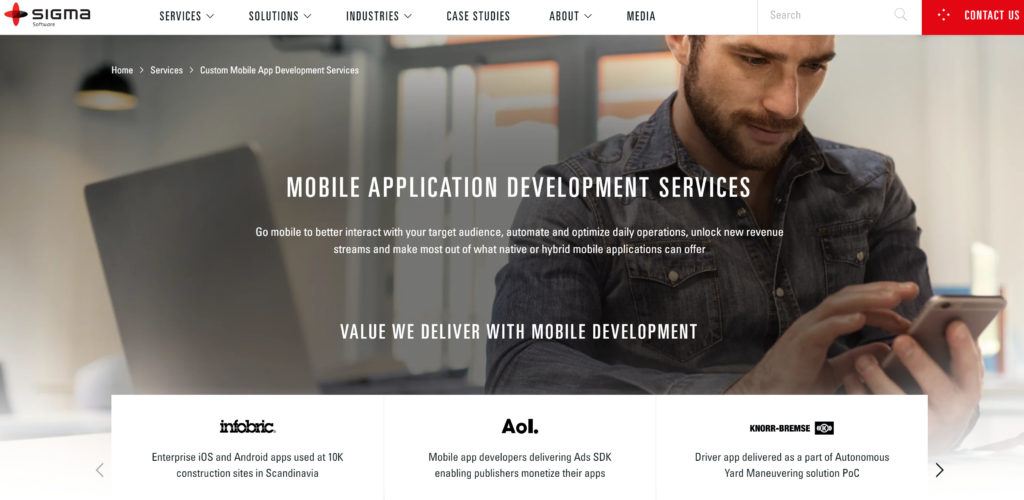 Source: Sigma
Source: Sigma
Typically, enterprise mobile apps are designed for employees who work for a particular department or team. Department-level enterprise apps have a broader scope, as their goal is to enable entire teams to improve their game.
On the employee level, you’ll find apps designed to help employees carry out a specific task or solve a particular type of problem.
Analytics apps help managers and data analysts follow important KPIs and measure the success of their initiatives.
Think carefully about your enterprise and the type of app that would work best.
Why should I develop an enterprise app?
The enterprise app market was worth $238.36 billion in 2020 and is expected to grow to $527.40 billion by 2030, so there’s huge potential in the space.
The benefits themselves are many; for example, an enterprise mobile app tailored for your HR department will enable a team to get in touch with company employees at any time.
Core functions here include managing payroll, noting absences, and gathering useful feedback on where the company can improve.
Let’s take accounting. Accounting professionals need constant access to their files, applications, and other business data to keep their books updated.
Being limited to desktop devices slows down work processes–accounting enterprise mobile apps can help to solve this problem.
Mobile accounting enables remote access to the data at any time, and accountants can work on the go from any device that’s connected to the internet.
Enterprise app developer example
 Source: Altoros
Source: Altoros
Enterprise mobile apps also fit well into the EDM (enterprise data management) process as they enable employees to access the most reliable data from a secure solution.
Employees will know how to access data and where to look for it, so they can carry on with their activities without unnecessary delays.
A mobile app can help improve operations related to data processing, analysis, verification, and even adjustment.
What is the enterprise app development process?
You need to develop the best enterprise app possible. One that loads quickly, focuses on the user experience, and runs efficiently.
Building an enterprise app is about following a specific process that ensures nothing gets missed during the app’s development.
The enterprise app development process splits into three main areas. You can find them below.
1. The design phase
At the beginning of the enterprise app development process, the key work depends on you.
You need to consider your overall business goals and strategy and how your app will affect the lives of employees and clients.
Two things to keep in mind here are the following:
- Set some future goals at this stage, as this gives you an idea of what impact you are expecting the app to have.
- No matter which sector your business operates in, your primary goal should be an app that will improve the lives of your employees (with features that suit your chosen business model).
It’s important for you to determine your goals so that you can communicate that to the app development team, allowing them to get started and improve the overall results.
A professional app development company will then determine the key features the mobile app needs to have and will construct a simple design module for the mobile app.
2. The development phase
Once you’ve effectively communicated your needs, the development phase begins.
The app development company will write code that caters to your business’s requirements, ensuring a seamless and intuitive user experience.
Two things to keep in mind here are the following:
- It’s important to make the app as simple and easy to use as possible and confirm that it’s efficient and bug-free.
- With platforms and devices always changing, agility is essential for building apps within your given budget.
Remember that helping your business grow and evolve is the goal.
Enterprise app developer example
 Source: BairesDev
Source: BairesDev
3. The deployment phase
The deployment phase involves the complete testing of the enterprise mobile app.
The app development company will consider the source code, documentation, interface, and interactions of the mobile app.
Two things to keep in mind here are the following:
- Testing is one of the critical steps in enterprise app development, and the company will carry out multiple tests to ensure the app is running smoothly.
- There are improvements and changes made at this stage–if the app is not delivering, the developer will tweak the design and try to make it as streamlined as possible.
Once the app development company and your business are both satisfied with the app, you’ll then need to launch it.
A mobile app’s release across the app stores requires you to prepare metadata, including the following:
- Your app’s title
- A description
- Category
- Keywords
- Launch icon
- Screenshots for the chosen app store
From there, the app will need to be updated to ensure it’s meeting your employees’ and customers’ needs.
Other considerations
A few other things to consider before and during the enterprise app development process can be found below.
Analyze your target audience
One of the most critical factors business owners must take into account before having their enterprise app developed is understanding the customer base.
In other words: the users who will use the app, their age range, and the country you want to target are important considerations while building and deploying enterprise apps.
Enterprise app developer example
 Source: Foresight Mobile
Source: Foresight Mobile
Use data analytics
Brands may use analytics to complement the performance of a large-scale mobile app. It’s possible to identify users’ specific functionality requirements and preferences via good research.
You can use mobile analytics to save data and utilize it in order to increase your mobile app’s performance (and effectiveness).
We’ll look at some best practices in the next section of this guide.
Enterprise app development best practices and features
Here are some of the main aspects to consider when developing an enterprise app, including best practices as well as essential and advanced features.
Take a user-centric approach
You need to prioritize a user-centric approach for your mobile app. Your app must cater to your employees’ daily needs to improve their engagement–in a nutshell, you need to ensure they love using it.
Before jumping straight into development, you need to amass data through surveys, user interviews, or focus groups that can help you answer the key questions of an app’s design and its usability.
Integrate with internal systems
Your mobile app should be easily integrated with your internal tools and systems. If you want to embrace the data-driven approach, you’ll first have to streamline workflows across multiple different platforms.
Developing your mobile app can help you integrate your company’s online tools; for instance, if your company uses specific software for managing projects, you can easily access the dashboard from the app.
Enterprise app developer example
 Source: Diffco
Source: Diffco
Convert your goals into app functionalities
A mobile app can provide your employees with quick access to daily and time-based management information and can save time as well as improve internal communications.
Building your enterprise app helps employees swiftly access information, find colleagues on communication platforms, and allows them to contact each other seamlessly.
Essential features
Your enterprise app will need to offer a lineup of essential features that the app can’t function without.
The MVP is the minimum standard to showcase your product to your target audience, and the features must meet the most critical functions of enterprise apps.
These are some of the essential features your mobile app needs to have:
1. Robust support
2. Push notifications
3. Cloud storage
4. Fast-loading content
5. Location-based services
6. Accessible image menu
7. File uploading
8. Real-time analytics
9. Calendar functionality
10. Offline app usage
Focus on app features that provide the greatest value to your customers. Gather feedback, let users tell you what features make sense to them, and then implement the changes when possible.
Enterprise app developer example
 Source: One Beyond
Source: One Beyond
Advanced features
Advanced features are (effectively) optional, but they allow your app to offer value to users. Advanced enterprise app features include the following:
1. NFC
2. AR
3. Voice input
4. Payment history
5. Geo-tracking
6. Virtual reality
7. AI support
8. Chatbots
9. Smart data
10. IoT integration
Of course, the more advanced features you add, the higher the cost of the mobile app’s development. When deciding your final budget, be sure to keep track of your overall costs.
How much does it cost to develop an enterprise mobile app?
Development costs of enterprise apps vary. Below are the average estimates, as well as a few other things to keep in mind:
- You should be able to get the first version of your enterprise app up and running for about $100,000–$250,000
- For complex enterprise apps that require custom builds, it’s not unusual for it to take around 9 to 12 months
- When working with an external team, a monthly budget of $2,500–$10,000 to keep the app updated is recommended
Depending on your business, you’ll need to have access to a few different teams that can assist you during the app development process. Developing a cross-platform mobile app that targets both platforms with a shared codebase is economical and highly recommended.
The good news is that it’s a flexible model where you can adjust the budget according to your need. That said, it’s best to contact an enterprise app development company for an estimate before doing anything else.
How can I benefit from enterprise app development services?
Partnering with enterprise app development companies enables you to create apps that enable employees to stay up-to-date with your business at all times.
These expert developers let you take advantage of the significant opportunity available while keeping things as hassle-free as possible.
Enterprise app developers build highly-scalable apps, whether they’re your first app or tenth. These development companies create stunning apps that use the latest tech and trends while meeting expectations.
Enterprise app developer example
 Source: KDG
Source: KDG
Some of the critical benefits of enterprise app development companies include the following:
- Cheaper development costs — Apps typically get designed using different frameworks, which allow app developers to reuse the code for multiple different enterprise apps.
- Better functionality — App development companies provide excellent functionality and usability with top-notch features.
- Custom plans — Custom enterprise app development plans that are designed to fit all needs and typically come with leading scalability.
- Improved security — Apps get built with increased security (this is essential) for your employees using the latest mobile app encryption technology.
- Smarter data management — Better data management solutions that protect employee and company data and help you stay compliant.
- Seamless communication — Communication at every key stage of your enterprise app development journey.
If you’re planning to design an enterprise app, getting a free quote from mobile app development professionals is usually a wise move–this is especially true if you’re a beginner or just starting out.
Get started with the best enterprise app developers
To recap, the most critical reasons for having an enterprise app are the following:
- Organizations can save time and money
- These apps will (securely) provide access to important information
- They can improve workflow and overall efficiency
- They create a single entry point for data for all departments
- They can solve problems and make jobs easier
- Data gets stored in a way that can be easily analyzed
- Complex business processes can be streamlined
- They enable an omnichannel approach
There are a number of app development companies that take on enterprise app development projects and have app developers with experience specifically catered to these apps. Here we’ve put together for you a list of the best.



